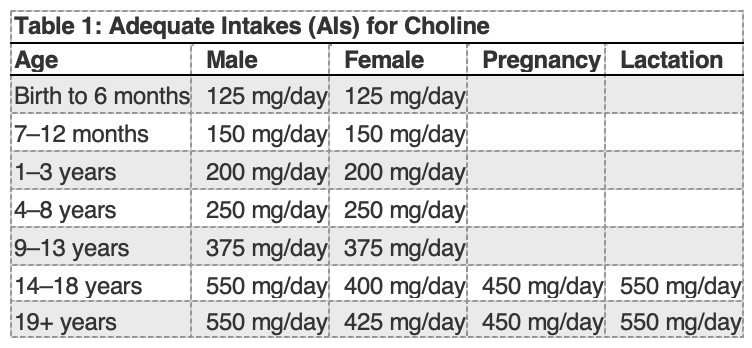Eggs contain a number of nutrients that are essential throughout the lifespan:
- High-quality protein contains building blocks needed to support healthy bones and muscles. Research suggests that exercise, along with optimal protein intake, can slow the effects of sarcopenia or chronic age-related muscle loss.
- Choline is essential for normal liver function and brain health. It is especially important during pregnancy to support normal fetal growth and development, and most pregnant women do not consume adequate amounts of choline. Consuming eggs during pregnancy is one solution to choline consumption issues.
- Lutein and zeaxanthin are antioxidants that are believed to reduce the risk of developing cataracts and slow the progression of age-related macular degeneration, a disease that develops with age.
U.S. Dietary Guidelines Advisory Committee Recommends Eggs as a First Food for Babies and Toddlers

By: Mickey Rubin, PhD, Executive Director of American Egg Board’s Egg Nutrition Center
July 15, 2020
Today is an important day for the American diet and for eggs. In an historic first, the Dietary Guidelines Advisory Committee today issued recommendations for birth to 24 months old and specifically recommended eggs as an important first food for infants and toddlers, as well as for pregnant and lactating women.
Today’s Scientific Report also highlighted the importance of a nutrient plentiful in eggs – choline – while recommending eggs as a first food for babies to reduce risk for an egg allergy. The Advisory Committee additionally encouraged eggs for pre-teens and adolescents.
Eggs are one of the best sources of choline, an essential nutrient critical for fetal brain development. The Advisory Committee classified choline as an important nutrient that is under-consumed by all Americans. Importantly, 92% of pregnant women fail to meet the daily Adequate Intake (AI) recommendations for choline.
The Advisory Committee also specifically recommended eggs as an important first food. The latest research on food allergy prevention recommends introducing eggs when your baby is 4-6 months old and developmentally ready to help reduce the chances of developing an egg allergy. Eggs are an important first food as they provide eight essential nutrients that help build a healthy foundation for life.
Eggs are a nutritional powerhouse that contribute to health and wellbeing at every age and life stage, providing critical nutrients including protein, choline, riboflavin (vitamin B2), vitamin B12, biotin (B7), pantothenic acid (B5), iodine and selenium, which are valuable for supporting muscle and bone health, brain development and more. The Advisory Committee also noted eggs are a source of vitamin D, a nutrient of public health concern because it is under-consumed by all Americans.
Additionally, the Advisory Committee reinforced the strong body of evidence that dietary cholesterol is not a nutrient of concern. The science on eggs and cholesterol has been steadfast. The vast majority of scientific evidence shows egg consumption is not associated with cardiovascular disease. In fact, a recent Harvard University study that evaluated more than 30 years of data reaffirmed that eating eggs is not associated with cardiovascular disease. Leading health organizations such as the American Heart Association also state that eggs can be part of heart-healthy diet patterns.
As Americans are building healthier diets, you can count on eggs. For more information on building a healthy diet with eggs, please visit EggNutritionCenter.org.
Every Bite Counts: Why Eggs are an Important First Food

By: Jen Houchins, PhD, RD
The 2020 Dietary Guidelines Advisory Committee says “every bite counts” when it comes to feeding infants and toddlers. This is the first time in Dietary Guidelines history that the DGAC is making recommendations for the Birth to 24-month lifestage and addresses complementary feeding as “a critical period for growth and development… characterized by high nutrient needs in relation to the amount of food consumed.1”
The Advisory Committee specifically recommended eggs as an important first food for infants and toddlers as they are a rich source of choline and because early introduction of eggs (after 4 months of age), when baby is developmentally ready, may help reduce the risk of developing a food allergy.
The following breaks down recommendations from the Advisory Committee based on age group.
BIRTH TO 6 MONTHS
For approximately the first 6 months of age, human milk, infant formula, or a combination of the two are an infant’s sole source of nutrition. Once developmentally ready (>4 months of age) – baby has good head and neck control, can sit upright, has lost the tongue-thrust reflex, and shows interest in food – complementary foods can be introduced.
6-12 MONTHS
During the 6-12 month period, an infant continues to receive human milk, infant formula, or a combination of the two, but also starts transitioning to a varied diet that includes complementary foods and beverages. This is where nutrient-rich foods with essential nutrients for growth and development come into play. The Advisory Committee recommends a variety of animal-source foods (meat, poultry, seafood, eggs, and dairy), fruits, and vegetables, nuts and seeds, and whole grain products in age-appropriate forms, beginning at ages 6 to 12 months, to provide key nutrients and build healthy dietary habits.
For infants fed human milk, the Committee recommends complementary foods that contain iron and zinc, such as meats and fortified infant cereals. Modest amounts, (i.e., less than 1 ounce equivalent per week), of seafood, eggs, and nuts is recommended for infants 6 to 9 months and minimum weekly amounts of 3 oz seafood, 1 egg, and 0.5 oz, respectively, by ages 9 to 12 months. Further, the DGAC recommends prioritizing fruits and vegetables, particularly those rich in potassium, vitamin A, and vitamin C, to provide adequate nutrition, but also to foster acceptance of these healthy foods.
During this time, the Committee also recommends the introduction of peanut-containing foods and eggs, to help reduce the risk of developing food allergies. Additionally, introducing baby to complementary foods like eggs, which are high in choline, supports brain health.2,3 It should also be noted that complementary feeding not only provides additional nutrients, but introduces different textures, and models healthy eating behaviors, as well. The table below outlines approximate amounts of complementary foods and beverages for ages 6 to 12 months.1

12-24 MONTHS
As baby moves past the 12-month mark and into the second year of life, many move away from human milk and infant formula entirely and transition to a fully varied diet of nutrient-rich foods and beverages. Others may choose to continue offering human milk in addition to a varied diet of nutrient-rich foods and beverages. Either way, the food patterns for this age group is consistent with proportions of food groups and subgroups recommended for children ages 2 years and older, which requires careful choices of foods to meet nutrient needs. The DGAC emphasizes offering developmentally appropriate forms of nutrient-rich animal-source foods, including meat, poultry, seafood, eggs, and dairy products, as well as nut and seed containing foods, fruits, vegetables, and grain products in age-appropriate forms. For toddlers whose diets do not include meat, poultry, or seafood, the Committee recommends eggs and dairy products on a regular basis, along with soy products and nuts or seeds, fruits, vegetables, grains, and oils. The tables below outline approximate amounts of foods and beverages for toddlers between the ages of 12 to 24 months, for those not receiving human milk or infant formula, those fed human milk, and for those following a vegetarian style eating pattern.1



EGGS AS A FIRST FOOD FOR INFANTS AND TODDLERS
Eggs are recommended after four months and when baby is developmentally ready for complementary foods, and throughout infancy and toddlerhood.
- Eggs are a nutrient-rich choice providing a good or excellent source of eight essential nutrients.
- Eggs provide various amounts of all the nutrients listed by the American Academy of Pediatrics4 as essential for brain growth.
- Introducing eggs early and often may help reduce risk of developing an allergy.
- Eggs are an affordable source of high-quality protein.
- Eggs are versatile and can be used to make a wide variety of dishes and can be adjusted to fit various developmental stages and age-appropriate textures.
Interested in more information?
- Handout: Eggs as a First Food Infographic
- Handout: Pregnancy and Birth to 24 Months toolkit
- Read: Eggs – An Essential Complimentary Food
- Read: Early Introduction of Eggs May Reduce the Risk of Developing an Egg Allergy
Check out these recipes for infants and toddlers:
- Recipe: Peanut Butter Sweet Potato Soufflé
- Recipe: Eggy Peanut Butter Muffins
- Recipe: Peanut Butter Oatmeal with Egg
- Recipe: Peanut Butter Egg Scramble
- Recipe: Savory Egg Veggie Pancake
- Recipe: Baby’s First Pancakes
- Recipe: Egg Veggie Casserole
References
- Dietary Guidelines Advisory Committee. Scientific Report of the 2020 Dietary Guidelines Advisory Committee: Advisory Report to the Secretary of Agriculture and the Secretary of Health and Human Services,. 2020; Available from: https://www.dietaryguidelines.gov/sites/default/files/2020-07/ScientificReport_of_the_2020DietaryGuidelinesAdvisoryCommittee_first-print.pdf
- Wallace, T.C., A Comprehensive Review of Eggs, Choline, and Lutein on Cognition Across the Life-span. J Am Coll Nutr, 2018. 37(4): p. 269-285.
- Wallace, T.C., et al., Choline: The Underconsumed and Underappreciated Essential Nutrient. Nutr Today, 2018. 53(6): p. 240-253.
- Schwarzenberg, S.J., et al., Advocacy for Improving Nutrition in the First 1000 Days to Support Childhood Development and Adult Health. Pediatrics, 2018. 141(2)
Choline Throughout the Life-Span

By: Katie Hayes, RDN
WHY IS CHOLINE IMPORTANT?
Choline is an essential nutrient, meaning that we must consume adequate amounts in the diet to achieve optimal health. Unfortunately, most people do not consume enough choline. In fact, more than 90% of Americans (including approximately 90% of pregnant women) fail to meet the adequate intake.1 The Dietary Guidelines Advisory Committee has classified choline as a nutrient that poses special challenges for Americans due to underconsumption and encouraged eggs for pregnant women, as a complementary food for babies and toddlers, and for pre-teens and adolescents.2 Many foods offer choline in small amounts, however, only a few foods are significant choline sources. Furthermore, most multivitamin supplements contain little, if any, choline. Fortunately, eggs are convenient, affordable, accessible, and an excellent source of choline.
Beginning in fetal development, Choline is critical to good health and remains essential throughout the lifespan. This nutrient is important in many ways.
- During pregnancy, choline helps the baby’s brain and spinal cord develop properly and supports brain health throughout life.
- Infants and young children need choline for continued brain development and health.
- Choline is part of a neurotransmitter called acetylcholine, which is important for muscle control, memory and mood.3
- Choline is also important for the support of membranes that surround your cells, the transportation of fats throughout the body and for liver health.
- New research is exploring how choline throughout life may have lasting effects on cognition and prevention of cognitive decline.4
HOW MUCH CHOLINE DO WE NEED?
The amount of choline an individual needs depends on many things, including age, gender and stage of life. Table 1 lists the current Adequate Intakes (AIs) for choline.3

WHAT FOODS HAVE CHOLINE?
People of all ages need adequate choline for good health, but very few consume enough through food and supplements. While many foods contain some choline, only a handful of foods are considered good or excellent sources. Fortunately, two large eggs (about 300mg of choline) contain more than half of the recommended intake for pregnant women and can help them meet their needs. The table below lists food sources of choline.2

CHOLINE & COGNITION
Choline plays a role in early brain development during pregnancy and infancy. There is evidence that infants exposed to higher levels of maternal choline (930 mg/day) during the third trimester have improved information processing speed, an indicator of cognitive function,4,5 during the first year of life.
The American Medical Association (AMA) House of Delegates recommended the addition of choline to prenatal vitamins because of its essentiality in promoting cognitive development of the offspring.6 This recommendation from AMA highlights the increased recognition of choline as a nutrient of concern. The 2015-2020 Dietary Guidelines for Americans (DGAs) also list choline as a nutrient under consumed by most Americans. The DGAs recommend individuals shift to healthier eating patterns to help meet nutrient needs, including choline.7
Interested in more information about choline?
- Read: Choline – The Underconsumed and Underappreciated Essential Nutrient
- Handout: Important Nutrients for Brain Health
- Watch: Brain Health
- Read: Research News – Choline, Lutein, and Cognition
- Watch: Jessica Ivey on WBRC Fox 6 News
- Recipe: Sweet and Savory Breakfast Bowl by Mary Ellen Phipps, RD
- Watch: Mind Your Eggs + Veggies: Nutrition for Cognitive Health webinar
References:
- Wallace TC, Fulgoni VL III. Assessment of total choline intakes in the United States. J Am Coll Nutr 2016, 35(2), 108-112.
- National Institutes of Health. Fact Sheet for Health Professionals: Choline. Version current 26 September 2018. ods.od.nih.gov/factsheets/Choline-HealthProfessional/Accessed June 22, 2020.
- Wallace TC. A comprehensive review of eggs, choline, and lutein on cognition across the life-span. J Am Coll Nutr 2018, 37(4), 269-285.
- Caudill MA, et al. Maternal choline supplementation during the third trimester of pregnancy improves infant information processing speed: a randomized, double-blind, controlled feeding study. FASEB J. 2018;32:2172-2180.
- AMA Wire. AMA backs global health experts in calling infertility a disease. https://wire.ama-assn.org/ama-news/ama-backs-global-health-experts-calling-infertility-disease
- U.S. Department of Health and Human Services and U.S. Department of Agriculture. 2015 – 2020 Dietary Guidelines for Americans. 8th Edition. December 2015. Available at http://health.gov/dietaryguidelines/2015/guidelines/.
Eggs: An Essential Complementary Food

By Jessica Ivey, RDN, LDN
The Egg Nutrition Center partnered with Jessica Ivey, RDN, LDN to write this blog post.
Some parents are excited to introduce their baby to solid foods, while others find the process nerve-racking. No matter where they fall on the spectrum, this is an important milestone for baby and can be a fun family experience.
Most babies are ready for complementary foods around 6 months of age. According to the American Academy of Pediatrics, there is not enough information to suggest which foods should be introduced first and in what order, but rather, it’s best to introduce a wide variety of single ingredient foods in any order.1 Different foods contain different nutrients, so a more varied diet will be more nutritionally complete. Also, food and flavor preferences are established early, so exposing infants to many different textures and flavors from an early age can help establish lifelong healthy eating patterns.
Previously parents were told to wait to introduce allergenic foods to their infants, especially if there was a family history of food allergies. But groundbreaking research2,3 has found that early introduction of potential allergens, including eggs, to an infant around 6 months of age helps to reduce the likelihood of developing an allergy to that food.
When considering first foods, parents should choose nutrient-rich foods with essential nutrients for growth and development. Eggs are a good or excellent source of eight essential nutrients, including choline and lutein, nutrients that are important for brain development, learning, and memory. Plus, eggs have all of the nutrients that the American Academy of Pediatrics lists as key nutrients that support neurodevelopment – which are protein, zinc, iron, choline, folate, iodine, vitamins A, D, B6 and B12, and long-chain polyunsaturated fatty acids.4
There are several ways to incorporate eggs into an infant’s diet. Here are some ideas to consider:
- Hard-cooked egg yolk mashed on a spoon or once baby is ready, mashed egg yolk spread on a piece of toast cut into sticks that the baby can pick up.
- Mixed meals like Peanut Butter Sweet Potato Souffle, Peanut Butter Oatmeal with Egg and Peanut Butter Egg Scramble are perfect for continual exposure to peanuts and eggs.
- Omelets are a great way to enjoy eggs while trying a variety of mix-ins, like cheese or sautéed vegetables. The omelet should be cut into strips that can be easily picked up.
- These Savory Egg and Veggie Pancakes and Baby’s First Pancakes are both perfect for self-feeding, as are these Eggy Peanut Butter Muffins.
- Once a child develops a better use of utensils, Basic Scrambled Eggs become easier to eat.
- Older toddlers can advance to an Egg and Cheese Waffle Sandwich or Veggie & Cheddar Crustless Quiche.
If parents are having trouble getting their child to try new foods, remember that many babies and toddlers need to be exposed to the same foods multiple times before accepting them. Encourage parents to keep offering nutrient-dense foods, like eggs, and eat nutritious foods themselves! Babies and toddlers are more likely to try foods that they see their peers, siblings, and parents eating.
Resources:
- DiMaggio D, et al. Updates in Infant Nutrition. Pediatr Rev, 2017. 38(10): p. 456.
- NIAID Guildeines https://www.niaid.nih.gov/diseases-conditions/guidelines-clinicians-and-patients-food-allergy
- AAP Guidelines https://pediatrics.aappublications.org/content/pediatrics/early/2019/03/15/peds.2019-0281.full.pdf
- Schwarzenberg S, et al. Advocacy for Improving Nutrition in the First 1000 Days to Support Childhood Development and Adult Health. Pediatrics, 2018. 141(2)
Parental Feeding Practices and Child Nutrition

By: Jennifer Anderson, MSPH, RDN, LD
Key messages
- Nutrition in the first several years of life sets lifetime food preferences and eating practices
- Teaching parents how to implement appropriate feeding practices at home enables an environment where children learn to prefer unprocessed, nutrient-dense foods, such as eggs.
- Parents need to be educated about serving nutrient-dense foods, and responsive feeding and positive parenting techniques.
Nutrition in the first several years of life sets lifetime food preferences and eating practices.1 Proper nutrition in the toddler years is also critical for rapid development.2 In fact, because toddlers have small stomachs, they need a diet of nutrient-dense foods that are minimally processed, such as eggs.
Many parents, however, are faced with picky eating behaviors. Most parents do not have adequate training in parental feeding and child nutrition, and this often leads them to practices that may promote poor nutrition and obesity.3
Many parents do not understand that “picky eating” is a normal behavior observed in most children. As a result, they begin to use unhelpful strategies to overcome this “problem.” They employ tactics such as restriction, bribing, and pressuring to get their children to eat nutritious foods.4 Unfortunately, these tactics are associated with poor long-term nutrition and health outcomes.
Here’s a scenario. A mother learns that eggs are one of the densest food sources of choline, and choline is necessary for proper brain development. She feels strongly that she wants her child to eat eggs. She serves eggs to her two-year-old daughter. Her daughter rejects them. The mom is upset. She begins to pressure her daughter to eat them. She forces her daughter to take a bite and mealtime becomes unpleasant. Other times, she bribes her daughter to eat the eggs, using dessert as a bribe. Unfortunately, these feeding practices can lead to an increased risk of obesity and a decreased preference for eggs in the long run.
This is a common scenario,4 showing parents need both nutrition information and feeding practice information. Nutrition professionals have the opportunity to instruct parents on evidence-based feeding practices. This will help parents teach their children to learn to like healthy choices without causing a damaged relationship with food.
Evidence-based parental feeding practices4 include the following.5
Exposure to nutrient-dense foods. While parents often think that a child does not like a food after only serving it once or twice, it may take many exposures for the child to accept it. It is essential to instruct parents to serve nutrient-dense foods, like eggs, repeatedly, and in different forms. Along with serving them frequently, parents can be given techniques for helping children choose to taste foods.
Responsive feeding. This type of feeding is a structure6 in which parents decide where food is served, what food is served, and when food is served, while children, decide what they want to eat from what is provided, and how much to eat. Parents use hunger and satiety cues from the child to help the child preserve their ability to self-regulate food intake.
Positive parenting. This type of parenting encompasses warmth toward the child and encourages autonomy and self-efficacy in the child. Parents provide behavioral limits and also sensitivity to cues from the child. It also includes role modeling. Parents can be encouraged to model eating a nutrient-dense diet and provide structure around food and feeding.
Given the ubiquitous presence of highly processed low-nutrient food in the food supply, parents need both nutrition and practice information. They need instruction to feed their children nutrient-dense foods that fill important nutrient needs, such as eggs. They also need information about positive feeding practices to help their children learn to eat nutrient-dense foods in the short-term and long-term.
Jennifer Anderson is a registered dietitian, mom of 2, and educates hundreds of thousands of parents @kids.eat.in.color on Instagram. She is the owner of Jennifer Anderson Nutrition, LLC, a public health company focused on chronic disease prevention and maternal mental health.
References
- Anzman-Frasca S., et al. Promoting healthy food preferences from the start: a narrative review of food preference learning from the prenatal period through early childhood. Obes Rev. 2018;19:576-604.
- Mameli C., et al. Nutrition in the First 1000 Days: The Origin of Childhood Obesity. Int J Environ Res Public Health. 2016;13.
- Kiefner-Burmeister A., et al. Implementation of parental feeding practices: does parenting style matter? Public Health Nutr. 2016;19:2410-4.
- Daniels L. A. Feeding Practices and Parenting: A Pathway to Child Health and Family Happiness. Ann Nutr Metab 2019;74(suppl 2):29–42.
- Daniels L. Complementary feeding in an obesogenic environment: Behavioral and dietary quality outcomes and interventions. In: Black RE, et. al. Complementary feeding: Building the foundations for a healthy lifestyle. Nestlé Nutr Inst Workshop Ser. Volume 87. Basel: Nestec Ltd., Vevey/Karger AG; 2017. pp. 167–81.
- Black MM, et. al. Responsive feeding is embedded in a theoretical framework of responsive parenting. J Nutr. 2011;141:490-4.
